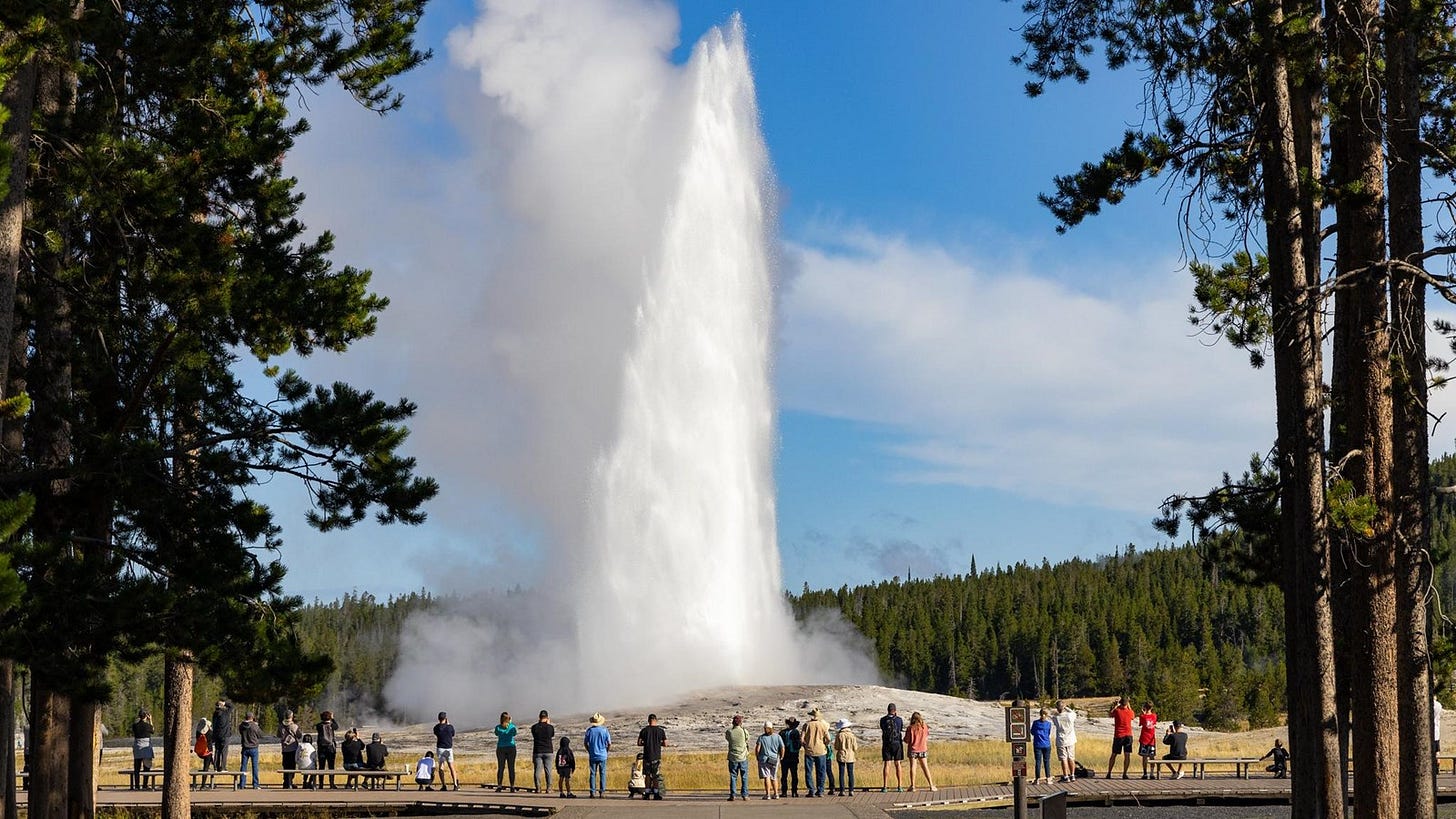https://www.nps.gov/places/old-faithful-geyser.htm
Cognitive bias where people assume that big events must have big causes
This again is a derivative of the human bias to attribute attention to things that they 1) Can perceive and 2) Perceive more and/or more often.
Big events in this world are really never isolated occurrences - they seem like solitary events because the magnitude of their implications dilutes the inclination to analyze their component parts.
In addition to this, the ‘big causes’ that people attribute to big events sometimes may not even be leading reasons for the events’ occurrences. This is particularly the case when examining events that humans cause.
We usually do not incorporate examples into these pieces but we should do so here because this is one of the predominant biases your writer observes in the contemporary world. Poignant events that reserve outsized space in our memory are typically bad - we don’t have to discuss why this is. One bad ‘event’ involving humans was the assassination of Archduke Franz Ferdinand by Gavrilo Princep on June 28th, 1914. This precipitated arguably the most vicious war in the history of human civilization but the event itself - the assassination - may have seemed itself like a ‘big’ event or even a big cause to a bigger event - World War I. The causes that led to the assassination were much more involved than a lone gunman shooting the Archduke. It began with a botched assassination attempt earlier in the day and included a wrong turn by a chauffer that coincided with one Gavrilo Princep ambulating away from the original parade route that he and his accomplices intended to interdict.
There were in fact dozens of would be assassins that day but a seemingly conscious force disrupted their plans. Their pertinaciousness prevailed. A description of the details below in truncated fashion:
Archduke Franz Ferdinand proceeds through the parade route in an open car (sounds familiar no?)
Several assassins take positions in various points on the parade route
The first few assassins do not make an attempt to execute their target
The motorcade proceeds to pass another assassin who emerges from the audience with such a bomb - a hand grenade. This assassin tosses it directly at the Archduke.
Somehow, the Archduke sees the grenade, elides it by moving his torso
The grenade falls onto the street and the fuse detonates some seconds later when the next car in the motorcade drives over it - this injures roughly 20 people and casts the parade into disarray
The Archduke’s motorcade speeds off
This individual - Franz - dodged the proverbial bullet
In leaving, the driver does not realize their contingency escape route is different than the original parade route
Upon noticing this, he stops the car to redirect but coincidentally does this mere feet from Gavrilo Princep who until now, was displaced from his original location on the parade route
The street corner in which this driver intends to redirect, leaves the passengers immobile, in front of, slightly below, exposed to and unbeknownst to the presence of their adversary who simply unsheathes his pistol and shoots them right then and there in the open car - a perfect storm
Understand that these near misses and near hits occur all throughout history. Thinking that it happens for a particular reason just obviates the limits of one’s knowledge about the history of humans. One could venture to say that it is just a ‘part of life’.
The Earth’s ‘big events’ however, may have a few ‘big causes’ but the scope of our perception renders us aphasic to their occurrences. There have been at least 5 big events involving the earth, each with causes beyond our perception or control. Your author reminds you that we still do not have means to materially affect these big causes, as many of them metastasize in the oceans, the liquid mantle of the planet, and the orientation of the planet several Euler angles relative to the sun.


